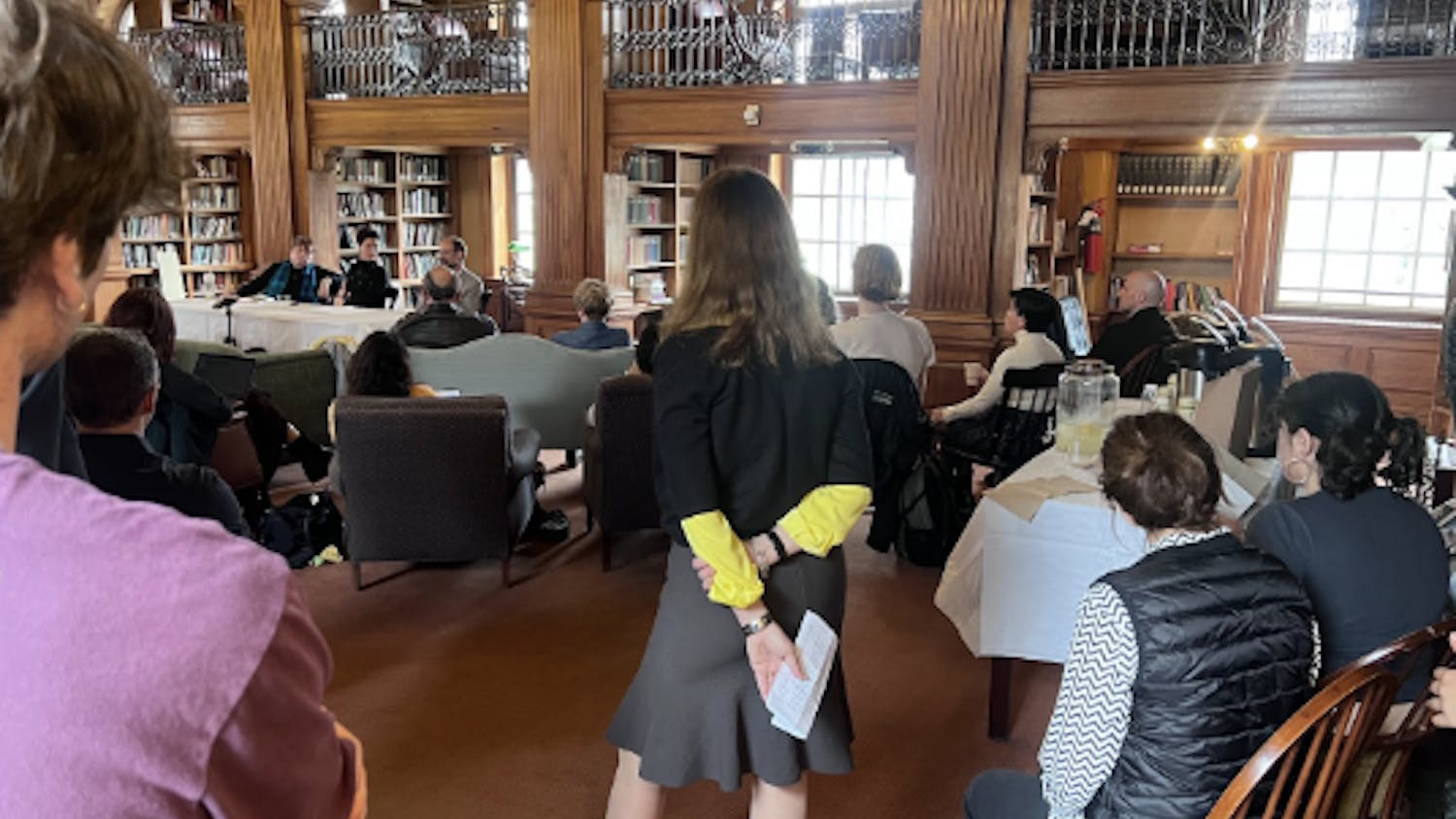Maurice Rapf '35 may be best known at Dartmouth for his role in founding both the Film Studies department and the Dartmouth Film Society. But prior to his teaching career, Rapf was a prolific screenwriter working in Hollywood during the 1930s and '40s.
Unfortunately, his film career would be cut short when he was blacklisted after being named in the hearings of the House Un-American Activities Committee -- but not before Rapf wrote a number of acclaimed screenplays. Here are some of the films he wrote or co-wrote during his time in Hollywood.
"They Gave Him a Gun" (1937)
Rapf co-wrote the screenplay for this World War II-era melodrama that examines the effects of war on two friends in the army and the woman they both love. When Jimmy (Franchot Tone) is captured, Fred (Spencer Tracy) finds an unknown source of courage, becomes a war hero and gets the girl (Gladys George). But happily ever after it is not, as Fred cannot turn off his urge to kill and joins the mob. To complicate matters further, Jimmy returns from Europe and crosses paths with Fred once again.
"Winter Carnival" (1939)
In a film that has become the stuff of Dartmouth legend, Ann Sheridan plays a woman who comes back to her alma mater to watch her sister compete for the carnival queen title she once held. What she didn't count on was sparking up an old romance with a former classmate and current professor (Richard Carlson). This was originally to be scripted by F. Scott Fitzgerald during his foray into Hollywood, but Fitzgerald was dismissed from the project in a humiliating scene in front of the Hanover Inn during the 1939 Dartmouth Winter Carnival. Rapf took over the writing duties. Eventually, Rapf would later become an inspiration for the character of Cecelia Brady from Fitzgerald's novel about Hollywood, "The Last Tycoon."
"Song of the South" (1946)
Walt Disney enlisted Rapf's screenwriting skills as part of a team of writers for this children's classic based on Joel Chandler Harris' "Uncle Remus" stories. The movie stars James Baskett as an African-American handyman on a post-Civil War plantation who cheers up a down-in-the-dumps young boy with his stories of Br'er Rabbit. It was monumental for several reasons. In addition to being one of Disney's first box-office hits, it was one of the first films to combine live action and animation. It also spawned the timeless ditty "Zip-a-Dee Doo-Dah." However, the film has not been distributed since its theatrical re-release in 1986, when the NAACP objected to its glossy portrayal of race relations in the South during Reconstruction. Disney disowned the film, and it has never been released on VHS in the United States.
"Father Brown" (a.k.a. "The Detective") (1954)
Only receiving writing credit years after its release, Rapf co-wrote this humorous caper featuring two future Oscar winners. Father Brown (Alec Guinness), based on G. K. Chesterton's mystery-novel character, is a priest who does some work as a private eye on the side. He is charged with transporting a valuable religious artifact. When it is stolen somewhere between London and Rome, it then becomes his mission not only to track down the thief but also to compel him to repent before God. Peter Finch co-stars.



